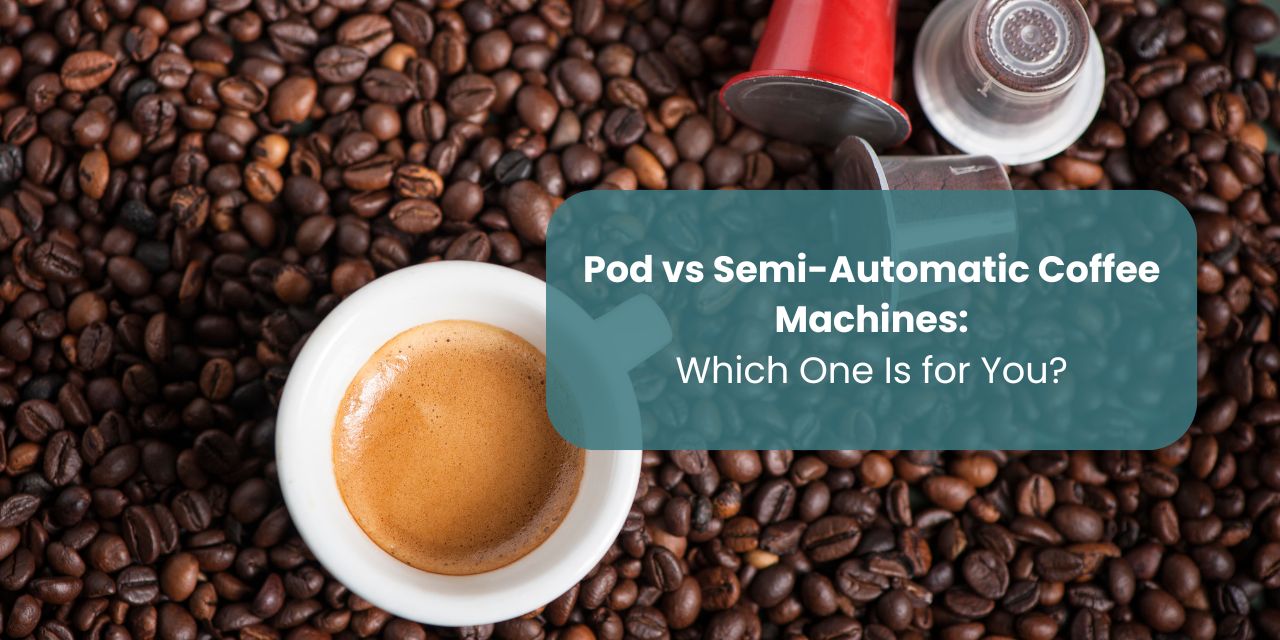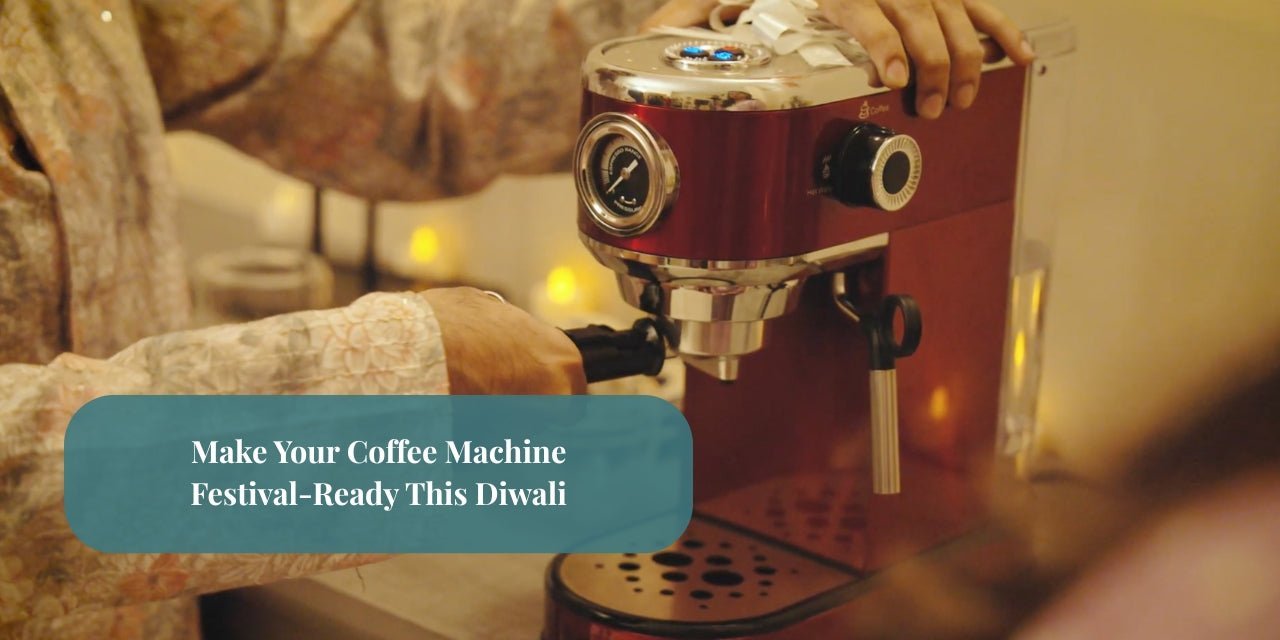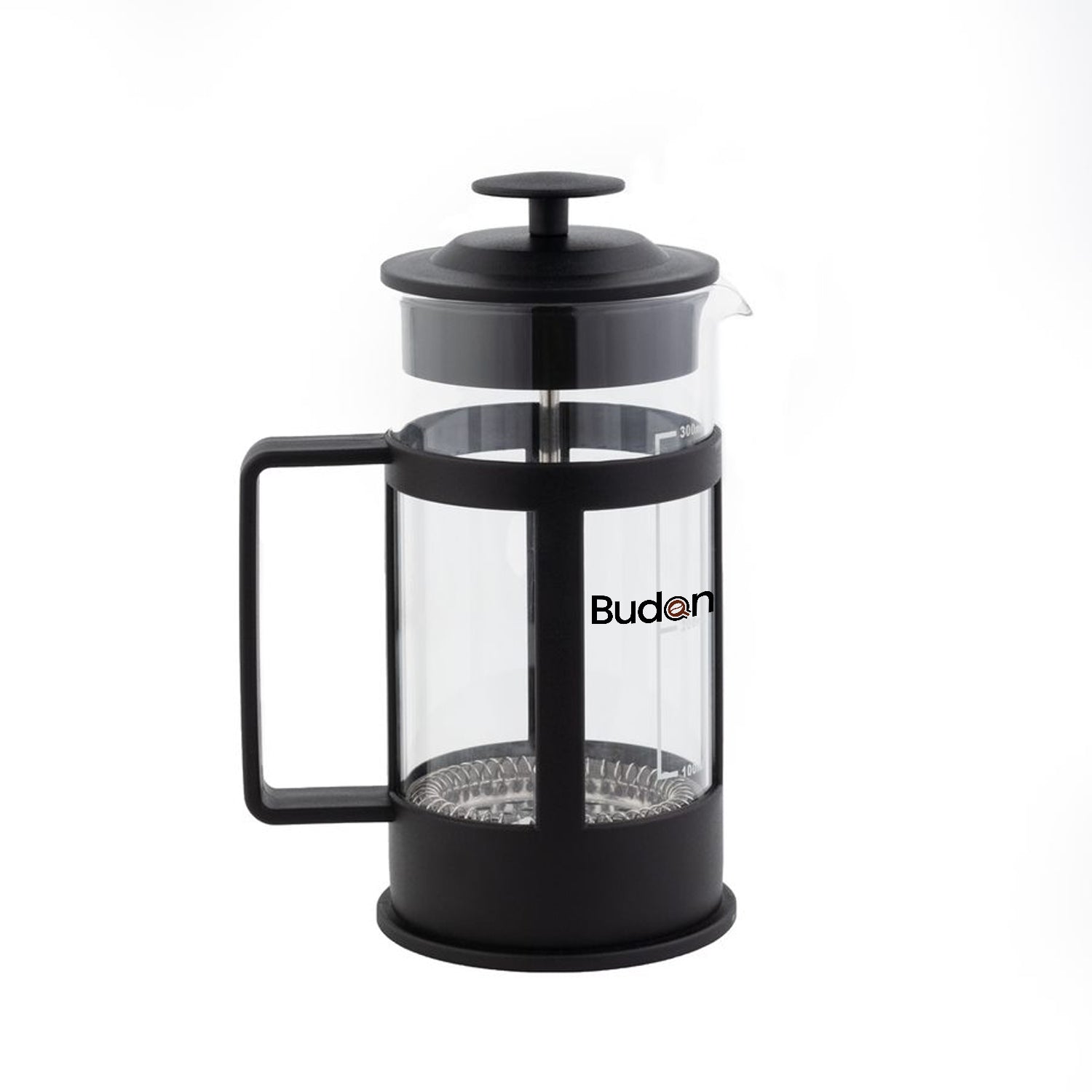If you’re planning to bring café-quality coffee into your home or office, one of the biggest decisions you’ll face is choosing the right coffee machine. Among the most popular options are pod (capsule) machines and semi-automatic espresso machines. Both can brew excellent coffee, but they cater to very different types of coffee drinkers.
In this guide, we’ll compare pod vs semi-automatic coffee machines, their pros and cons, costs, and which type might be the perfect fit for your lifestyle.
Understanding the Basics
What is a Pod Coffee Machine?
A pod coffee machine (also called a capsule machine) uses pre-packaged coffee pods or capsules to brew a single serving of coffee. Popular brands like Nespresso, Keurig, and Dolce Gusto dominate this category.
-
How it works: Insert a pod → press a button → enjoy coffee in under a minute.
-
Best for: Convenience, speed, and consistency.
What is a Semi-Automatic Coffee Machine?
A semi-automatic espresso machine gives you more control over your brewing process. You grind the beans, tamp them, and start the shot. The machine regulates water pressure and temperature but leaves timing and finesse up to you. Popular brands include Lelit, Gaggia, and Rancilio.
-
How it works: Add freshly ground coffee → tamp → control extraction → craft espresso with barista-level precision.
-
Best for: Coffee enthusiasts who enjoy experimentation and customization.
Pod vs Semi-Automatic: Key Differences
|
Feature |
Pod Machine |
Semi-Automatic Machine |
|
Ease of Use |
Extremely easy – insert pod & brew |
Requires skill – grind, tamp, and brew |
|
Speed |
30–60 seconds |
3–5 minutes |
|
Consistency |
Always the same taste |
Depends on grind size, tamp, and extraction |
|
Coffee Quality |
Good, but limited by pod options |
Café-quality espresso with proper technique |
|
Variety |
Wide range of flavors, but limited customization |
Complete control over beans, grind, and strength |
|
Maintenance |
Minimal cleaning |
Regular cleaning, backflushing, and descaling |
|
Cost per Cup |
Higher (due to pods) |
Lower (beans are cheaper per cup) |
|
Sustainability |
Concerns about pod waste |
More eco-friendly with beans |
|
Ideal User |
Busy professionals, casual coffee drinkers |
Coffee hobbyists, espresso lovers |
Advantages of Pod Coffee Machines
-
Unmatched Convenience
-
Perfect for people with busy lifestyles.
-
Just insert a capsule and your coffee is ready in seconds.
-
Consistent Taste
-
Every pod delivers the same flavor profile, making it reliable.
-
No need to worry about grind size or tamping pressure.
-
Wide Flavor Options
-
From vanilla lattes to bold espressos, there’s a pod for everyone.
-
Great for households where different members like different styles of coffee.
-
Compact & Office-Friendly
-
Sleek design and small footprint, ideal for kitchens and office pantries.
Drawbacks of Pod Coffee Machines
-
High Cost Per Cup
-
Pods are more expensive compared to fresh beans.
-
Over time, daily use can become costly.
-
Limited Customization
-
You’re restricted to the pod options available.
-
No way to control grind, brew ratio, or strength.
-
Environmental Concerns
-
Most pods are made of plastic or aluminum.
-
Recycling is possible but not always convenient.
Advantages of Semi-Automatic Coffee Machines
-
Barista-Level Espresso at Home
-
With fresh beans and the right technique, you can replicate café-quality drinks.
-
Rich crema, full-bodied espresso, and customized flavor.
-
Complete Control & Experimentation
-
Adjust grind size, dose, tamping pressure, and extraction time.
-
Perfect for coffee enthusiasts who enjoy fine-tuning.
-
Lower Long-Term Cost
-
Whole beans are cheaper than pods.
-
High initial investment, but pays off over years of use.
-
Eco-Friendly Choice
-
No disposable pods.
-
Coffee grounds can be composted, reducing waste.
Drawbacks of Semi-Automatic Coffee Machines
-
Steeper Learning Curve
-
Requires practice to get the perfect shot.
-
Beginners may face sour or bitter coffee initially.
-
Time-Consuming
-
Grinding, tamping, and brewing take longer compared to pods.
-
Not ideal for people who want instant coffee.
-
Maintenance Needs
-
Machines require cleaning, descaling, and backflushing.
-
More effort compared to pod machines.
Cost Comparison
-
Pod Machines:
-
Price: ₹5,000 – ₹20,000 (for basic to premium models).
-
Pod Cost: ₹40 – ₹90 per cup.
-
Semi-Automatic Machines:
-
Price: ₹20,000 – ₹1,00,000+ depending on brand and features.
-
Bean Cost: ₹15 – ₹25 per cup.
Pods are cheaper initially but costlier in the long run. Semi-automatics are an investment that saves money over time.
Which One Should You Choose?
Choose a Pod Coffee Machine If:
-
You prioritize convenience over customization.
-
You want quick coffee at home or office without effort.
-
You don’t want to worry about grinding, tamping, or cleaning.
-
You’re okay with higher per-cup costs for ease of use.
Choose a Semi-Automatic Coffee Machine If:
-
You’re passionate about coffee and enjoy the ritual of brewing.
-
You want café-quality espresso with full control over taste.
-
You’re willing to invest time and effort in learning.
-
You want a sustainable, cost-effective solution in the long term.
The Middle Ground: Hybrid Options
If you can’t decide, consider machines that combine both worlds:
-
Some semi-automatic machines allow ESE pods (Easy Serving Espresso pods), giving you convenience when you’re in a rush.
-
Brands like Budan One Touch even combine pods and fresh coffee brewing in one unit.
These hybrid machines can be a perfect compromise for households with mixed preferences.
Final Thoughts
When it comes to pod vs semi-automatic coffee machines, the choice depends on your priorities.
-
If you’re a busy professional who values speed, simplicity, and consistency, a pod machine will fit right in.
-
If you’re a coffee lover who enjoys experimenting and wants the full café experience at home, a semi-automatic espresso machine will be more rewarding.
Either way, investing in the right machine will elevate your coffee ritual and make every cup more enjoyable.


























